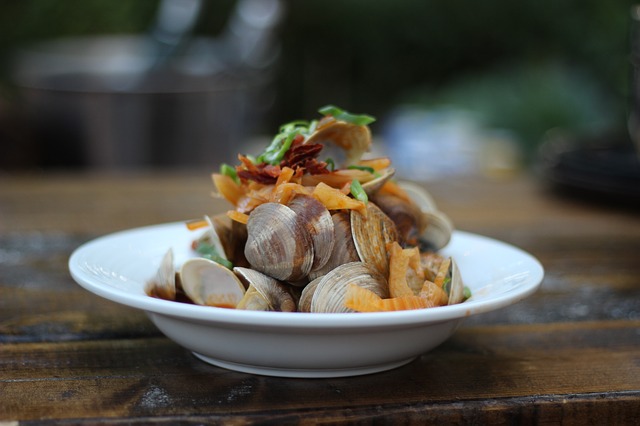Some people, particularly New Jersey natives, love clamming. They have their perfect, undisclosed inlet and hit it as soon as they can bask in the sun of the first warm spring day.
Clam season typically begins in March, but varies by bay and inlet. Many are only open for six months for clamming season, making it essential to take advantage of the first opportunity to dig for the delectable hard clams. Clamming is allowed between sunrise and sunset, but not on Sundays.
For newcomers to the Jersey area, there are three basic ways to go clamming. The easiest way is to use a clam rake, as it has longer tines that yard rakes. You can also use a shorter clam digger and search on all fours. Those into getting down and dirty may prefer mushing, where you use your hands and feet to feel the clams and scoop them up.
Clambakes are largely orchestrated with local traditions and ingredients, so there is not one way to do them. Many recipes involve ingredients like onions, leeks, potatoes, sausage seasonings and white wine. Some along the Northeast Coast also include other seafood.
The clambake is primarily a New England tradition, but is also incredibly popular in other shore cities like Cleveland, Ohio as well. Given its abundance of clams, it has began gaining popularity along the Jersey Shore too as it is the perfect casual party.
In New England, it is summer fare and always includes lobster, as it is readily available, potatoes and corn on the cob. In Ohio, it is a fall tradition and may or may not include other seafood.
The clambake goes back to Native American cooking techniques. It was the original inhabitants of this area who taught colonists how to steam clams and other foods in the ground.
A traditional clambake starts with a hole in the ground. The bottom is covered with large rocks and then coal is piled and lit. Once the fire burns for a couple of hours and is hot, coals are pushed aside and the rocks are covered with seaweed or rockweed. The food is then wrapped in individual servings in a cheesecloth and put on the seaweed. It is covered with more seaweed and then a tarp. It takes about two hours to cook.
The dilemma in New Jersey is most beaches don’t allow fire pits. However, you can still do the traditional clambake on private property.
At Foodini’s, we take the culture and tradition of the summer clambake to heart. We offer clambake meals in our vast array of services including our corporate catering service and wedding catering.
A summer clambake is a great way to bring your family together. You can find out about all our services at our website.
